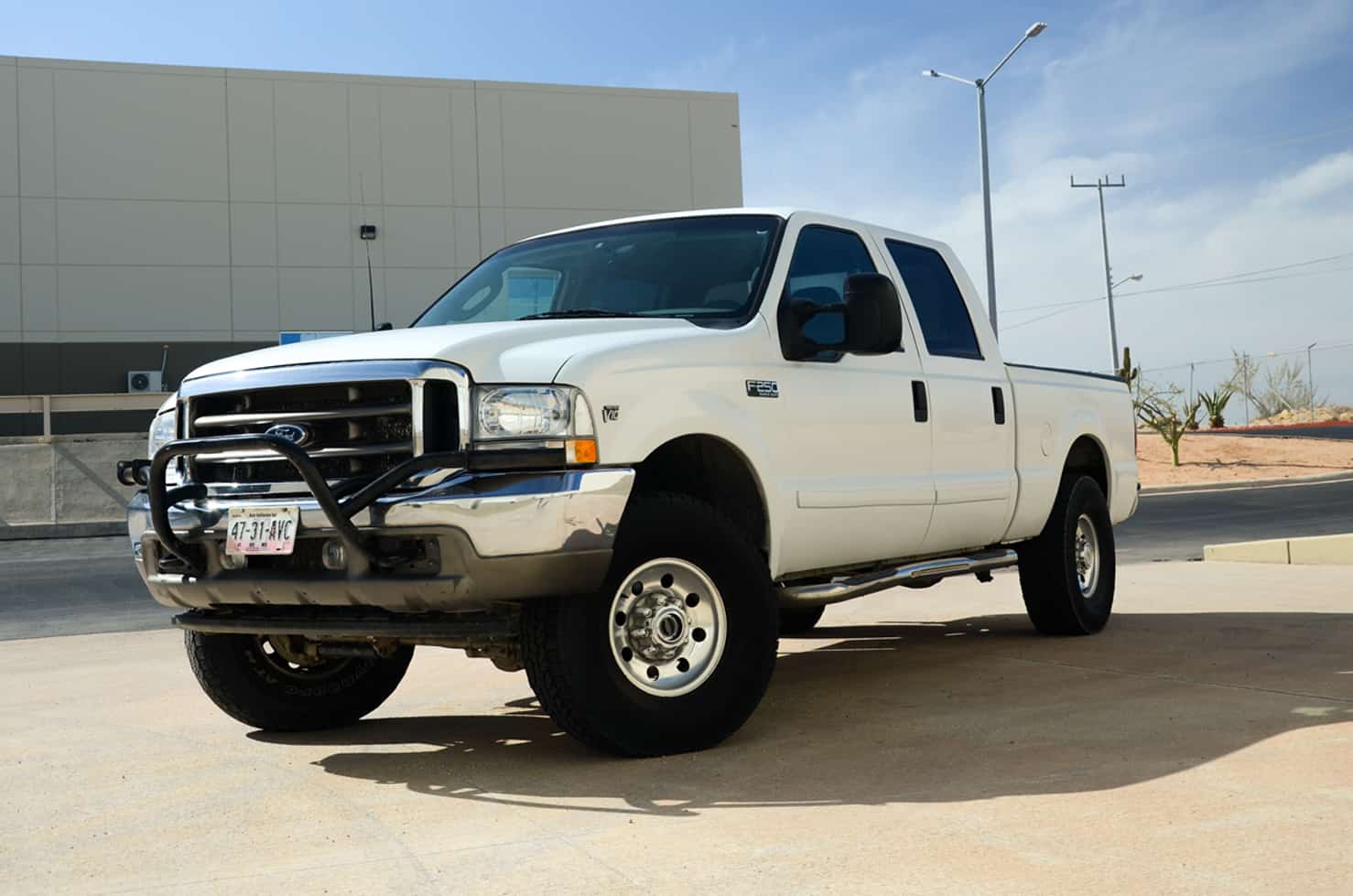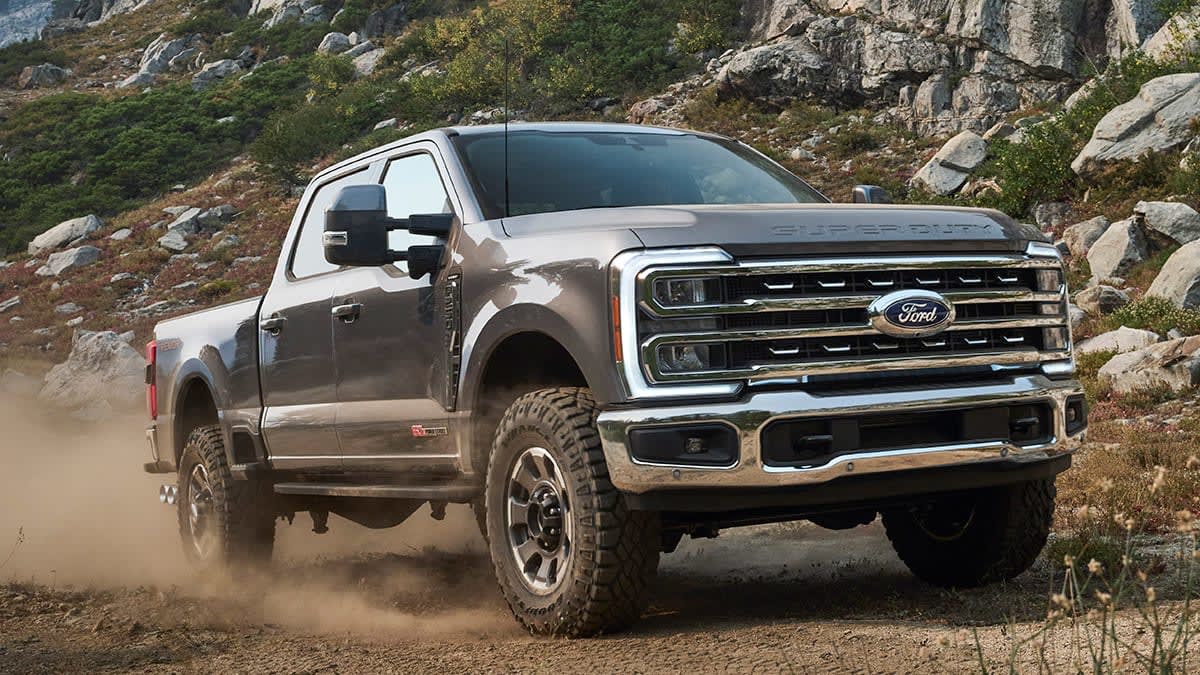Diesel Pickup Trucks For Rent: Your Ultimate Guide to Power, Performance, and Practicality pickup.truckstrend.com
Introduction
When the job demands more than just a standard vehicle, when heavy loads need hauling, or when rugged terrain calls for serious capability, diesel pickup trucks for rent emerge as the undisputed champions. These robust machines are engineered for superior power, exceptional torque, and impressive fuel efficiency under heavy loads, making them indispensable for a wide array of tasks. From contractors needing to transport equipment and materials, to homeowners embarking on major landscaping or moving projects, event organizers setting up large-scale venues, or even adventurers towing substantial RVs, renting a diesel pickup provides the muscle and reliability that gasoline trucks often can’t match. This comprehensive guide will delve into everything you need to know about diesel pickup trucks for rent, helping you make an informed decision and ensuring a smooth rental experience.
Diesel Pickup Trucks For Rent: Your Ultimate Guide to Power, Performance, and Practicality
The Unmatched Power: Why Choose a Diesel Pickup for Rent?
Opting for diesel pickup trucks for rent offers distinct advantages, especially when faced with demanding tasks. Understanding these benefits is key to appreciating their value:
- Superior Towing and Hauling Capacity: The hallmark of a diesel engine is its immense torque, delivered at lower RPMs. This translates directly into unparalleled towing and hauling capabilities. Diesel trucks can effortlessly pull heavy trailers, transport large payloads in their beds, and climb steep grades without straining, making them ideal for equipment transport, large-scale moving, or agricultural needs.
- Enhanced Fuel Efficiency (Under Load): While diesel fuel might sometimes be pricier per gallon than gasoline, diesel engines are significantly more fuel-efficient, particularly when working hard. Under heavy loads or during sustained towing, a diesel truck will typically consume less fuel than a comparable gasoline model, leading to fewer stops at the pump and potentially lower overall operating costs for your project.
- Durability and Longevity: Diesel engines are built to withstand high pressures and continuous heavy-duty use. Their robust construction and lower operating RPMs contribute to greater durability and a longer lifespan, which means a rented diesel truck is likely to be a reliable workhorse, even if it has accumulated many miles.
- Consistent Performance in Challenging Conditions: Whether navigating muddy construction sites, traversing mountainous roads, or enduring long hauls, diesel engines maintain consistent power delivery. Their inherent strength makes them more resilient in challenging environments and under continuous stress.
- Cost-Effectiveness for Specific Tasks: For tasks involving significant weight or distance, the efficiency and power of a diesel truck can translate into cost savings by reducing the number of trips required and minimizing fuel consumption, thereby justifying the potentially higher rental rate compared to a gasoline truck.

Navigating the Options: Types of Diesel Pickups Available for Rent
When considering diesel pickup trucks for rent, you’ll typically encounter models categorized by their duty and capacity:
- Heavy-Duty Diesel Pickups (e.g., Ford F-250/350 Super Duty, Ram 2500/3500, Chevrolet Silverado/GMC Sierra 2500/3500 HD): These are the most common diesel rentals and the true workhorses. They offer the highest towing and payload capacities, often exceeding 15,000 lbs for towing and several thousand pounds for payload. They come in various configurations, including single rear wheel (SRW) and dual rear wheel (DRW, or "dually" for maximum stability and capacity), different bed lengths (short, standard, long), and cab styles (regular, extended, crew cab). These are perfect for large construction equipment, substantial RVs, or multi-ton material hauling.
- Light-Duty Diesel Pickups (e.g., Ram 1500 EcoDiesel, older Ford F-150 Power Stroke): While less common in rental fleets today, some rental companies might offer lighter-duty trucks equipped with smaller diesel engines. These provide better fuel economy than their gasoline counterparts for lighter towing and everyday driving while still offering a torque advantage. They are suitable for smaller trailers, recreational towing, or those who need diesel efficiency without the full heavy-duty capability.
When selecting, consider the specific weight of what you need to tow or haul, the distance, and the terrain. Always choose a truck with a greater capacity than your estimated maximum load for safety and performance.
Where to Find Your Rental: Top Sources for Diesel Trucks
Finding diesel pickup trucks for rent requires knowing where to look:

- National Truck Rental Chains: Companies like Enterprise Truck Rental, Penske Truck Rental, and Ryder are prime sources. They specialize in commercial vehicle rentals and typically have a robust fleet of heavy-duty diesel pickups designed for work.
- Local Independent Rental Agencies: Smaller, local rental companies might also carry diesel trucks. These can sometimes offer more flexible terms or specialized vehicles not found at national chains.
- Dealerships: Some large truck dealerships offer rental services, often featuring their brand’s specific diesel models. This can be a good option for newer, well-maintained vehicles.
- Specialized Equipment Rental Companies: Companies that rent out construction equipment often have heavy-duty trucks to complement their machinery, which can include diesel pickups.
Your Rental Journey: A Step-by-Step Guide to Renting a Diesel Pickup
Renting diesel pickup trucks for rent is straightforward with these steps:
- Assess Your Needs: Determine the exact weight of what you’re towing or hauling, the required bed length, and how many passengers you need to accommodate. Don’t forget to consider the duration of the rental.
- Research and Compare: Contact several rental companies. Inquire about availability, specific truck models, rental rates (daily, weekly, monthly), mileage limits, and insurance options.
- Check Requirements: Ensure you meet the rental company’s criteria, which typically include a valid driver’s license, minimum age (often 21 or 25 for heavy-duty vehicles), and a major credit card for deposit and payment. For very heavy loads, a commercial driver’s license (CDL) might be required, so verify weight limits.
- Make a Reservation: Book your truck in advance, especially during peak seasons or for specialized vehicles. Confirm all details: pickup time, return time, location, and the exact vehicle type.
- Vehicle Inspection: Before driving off, thoroughly inspect the truck for any existing damage (scratches, dents, mechanical issues) and ensure it’s noted on the rental agreement. Take photos or videos for your records. Check tire pressure, fluid levels, and ensure all lights and signals work.
- Understand the Contract: Read the rental agreement carefully. Pay attention to fuel policy (return full or pay a refueling fee), mileage overage charges, damage waiver options, and return procedures.
- Return the Vehicle: Return the truck on time and in the agreed-upon condition. Refuel it if required by the contract. Conduct a final inspection with the rental agent.
Essential Checks: Important Considerations Before You Rent
Before you commit to diesel pickup trucks for rent, keep these critical points in mind:
- Licensing Requirements: Most standard diesel pickups (F-250/2500, F-350/3500 SRW) can be driven with a regular Class D driver’s license. However, if the truck’s Gross Vehicle Weight Rating (GVWR) or the Gross Combined Weight Rating (GCWR, truck plus trailer) exceeds certain thresholds (e.g., 26,000 lbs in many states), a commercial driver’s license (CDL) might be necessary. Always verify with the rental company and your local DMV.
- Insurance Coverage: Your personal auto insurance policy might not cover rental trucks, especially heavy-duty ones, or might have limited coverage. Check with your insurance provider. Rental companies offer supplemental insurance or damage waivers, which, while adding to the cost, provide peace of mind. Some credit cards offer rental car insurance, but often exclude trucks or specific types of damage.
- Fueling: Diesel vs. Gasoline: This is perhaps the most critical consideration. Diesel fuel is NOT gasoline. Accidentally putting gasoline into a diesel tank can cause severe and costly engine damage. Diesel pumps typically have larger nozzles and are green or yellow, but always double-check the label on the pump and the truck’s fuel cap.
- Mileage Limits and Surcharges: Many rental agreements include a daily, weekly, or monthly mileage allowance. Exceeding this limit can result in significant per-mile surcharges. Calculate your estimated mileage beforehand.
- Maintenance and Breakdown Policy: Inquire about roadside assistance and what to do in case of a mechanical breakdown.
- Towing Equipment: If you plan to tow, ensure the rented truck has the correct hitch receiver (e.g., 2-inch or 2.5-inch), trailer wiring (4-pin or 7-pin), and a functional integrated trailer brake controller if your trailer has electric brakes. Many heavy-duty rentals come equipped, but always confirm.
- Availability: Diesel trucks are less common in rental fleets than gasoline trucks, and heavy-duty models are even more specialized. Book well in advance to secure your desired vehicle.
Maximizing Your Experience: Tips for a Smooth Diesel Truck Rental
To ensure your experience with diesel pickup trucks for rent is as efficient and trouble-free as possible:
- Book in Advance: Especially for peak seasons or specific models, early booking is crucial.
- Confirm All Details: Double-check your reservation, pickup time, and any special requests (e.g., trailer brake controller) before you arrive.
- Understand the Fuel Policy: Clarify whether you need to return the truck with a full tank of diesel or if there’s a refueling charge.
- Inspect Thoroughly: Beyond just damage, check tire pressure, fluid levels, and ensure the interior is clean and functional.
- Drive Responsibly: Diesel trucks, especially heavy-duty ones, are larger and heavier. Allow more stopping distance, take turns wider, and be mindful of overhead clearances.
- Return on Time: Late returns can incur additional charges. If you anticipate delays, contact the rental company immediately.
Addressing Challenges: Common Hurdles and Their Solutions
While diesel pickup trucks for rent offer immense benefits, a few challenges can arise:
- Limited Availability:
- Solution: Book several weeks or even months in advance. Consider alternative rental locations or specialized commercial truck rental agencies.
- Higher Rental Cost:
- Solution: Justify the cost by calculating the efficiency savings from fewer trips or better fuel economy under heavy loads. Compare total project cost, not just rental rate.
- Fueling Errors (Putting Gasoline in Diesel):
- Solution: Always double-check the pump nozzle and the truck’s fuel cap. Diesel nozzles are typically larger and often yellow or green. Pay attention! If you make this mistake, DO NOT START THE ENGINE. Call the rental company immediately for assistance.
- Maintenance Issues/Breakdowns:
- Solution: Understand the rental company’s roadside assistance policy before you leave. Keep their contact number handy.
- Navigating Large Vehicles:
- Solution: If unfamiliar, practice driving the truck in an empty lot before heading into traffic. Use your mirrors extensively, and be aware of your increased blind spots.
Practical Advice for Renting Diesel Pickups
- Overestimate Your Needs: When calculating towing and payload, add a 10-20% buffer to your estimated maximum weight. It’s always safer to have more capacity than you need.
- Don’t Rely Solely on Personal Insurance: Always confirm with your personal auto insurer the extent of coverage for heavy-duty rental trucks. If coverage is limited, seriously consider the rental company’s damage waiver.
- Know Your State’s Towing Laws: Research specific regulations regarding trailer length, width, safety chains, and brake requirements in your state and any states you’ll be traveling through.
- Budget for Fuel and Mileage: Diesel fuel costs and potential mileage overage charges can significantly impact your total rental expense. Factor these into your project budget.
Price Table: Sample Rates for Diesel Pickup Truck Rentals
Please note that these are sample prices and can vary significantly based on location, rental company, truck model, time of year, demand, and duration of rental. Always get a specific quote from your chosen rental provider.
| Truck Type (Example) | Towing Capacity (Approx.) | Payload Capacity (Approx.) | Daily Rate (Avg.) | Weekly Rate (Avg.) | Monthly Rate (Avg.) | Mileage Allowance (Daily) | Extra Mileage Cost (Per Mile) |
|---|---|---|---|---|---|---|---|
| Ford F-250 / Ram 2500 | 15,000 lbs | 3,000 lbs | $150 – $250 | $800 – $1,400 | $2,500 – $4,500 | 100 – 150 miles | $0.30 – $0.75 |
| Ford F-350 / Ram 3500 | 18,000 lbs | 4,500 lbs | $180 – $300 | $950 – $1,700 | $3,000 – $5,500 | 100 – 150 miles | $0.30 – $0.75 |
| Ford F-350 Dually / | 25,000 lbs+ | 6,000 lbs+ | $200 – $350+ | $1,100 – $2,000+ | $3,500 – $6,000+ | 100 – 150 miles | $0.30 – $0.75 |
| Ram 3500 Dually |
Disclaimer: Prices are estimates and subject to change. Always verify current rates and terms with the rental company.
Frequently Asked Questions About Diesel Pickup Trucks For Rent
Q1: Do I need a special license to drive a diesel pickup for rent?
A1: For most standard heavy-duty diesel pickups (like an F-250 or Ram 2500/3500 SRW), a regular Class D driver’s license is sufficient. However, if the truck’s Gross Vehicle Weight Rating (GVWR) or the combined weight of the truck and trailer (Gross Combined Weight Rating – GCWR) exceeds 26,000 lbs, a commercial driver’s license (CDL) may be required. Always confirm with the rental company and your local DMV based on your specific load.
Q2: Is diesel fuel more expensive than gasoline?
A2: Historically, diesel fuel prices can fluctuate and are sometimes higher per gallon than gasoline. However, diesel engines are significantly more fuel-efficient, especially under heavy loads. This often means you’ll get more miles per gallon and potentially lower overall fuel costs for demanding tasks compared to a gasoline truck.
Q3: Can I tow anything with a rented diesel truck?
A3: Rented diesel trucks come with specific towing capacities. You must stay within the truck’s Gross Vehicle Weight Rating (GVWR) and Gross Combined Weight Rating (GCWR). Ensure your trailer has the correct hitch type, and if it has electric brakes, confirm the truck has a functioning trailer brake controller.
Q4: What kind of insurance do I need for diesel pickup trucks for rent?
A4: Your personal auto insurance may not fully cover heavy-duty rental trucks. It’s crucial to contact your insurance provider to understand your coverage limits. Rental companies offer additional insurance or damage waivers, which are often recommended for peace of mind and comprehensive protection.
Q5: Are diesel trucks harder to drive than gasoline trucks?
A5: Diesel pickup trucks, especially heavy-duty models, are generally larger and heavier than typical passenger vehicles. They require more space for turning and longer stopping distances. While not inherently "harder" to drive, they demand more awareness and careful handling due to their size and power.
Q6: How far in advance should I book diesel pickup trucks for rent?
A6: It’s highly recommended to book as far in advance as possible, especially if you need a specific model, during peak seasons (e.g., spring/summer moving season), or for long-term rentals. A few weeks to a month in advance is a good guideline.
Q7: What if I accidentally put gasoline in a diesel truck?
A7: DO NOT START THE ENGINE! Putting gasoline in a diesel engine can cause severe, expensive, and often irreparable damage to the fuel system and engine. If you realize the mistake before starting the engine, contact the rental company immediately. They will advise on having the fuel tank drained and flushed.
Conclusion
Diesel pickup trucks for rent offer an unparalleled combination of power, efficiency, and durability for tasks that demand serious muscle. Whether you’re a professional contractor, an avid DIYer, or simply need to move something substantial, understanding the benefits, types, and rental process for these robust vehicles is crucial. By planning ahead, understanding the rental terms, and adhering to important safety and operational considerations, you can harness the formidable capabilities of a diesel pickup truck to accomplish your most challenging projects with confidence and efficiency. They are more than just vehicles; they are indispensable tools that empower you to tackle heavy-duty jobs with ease, ensuring your project runs smoothly from start to finish.



